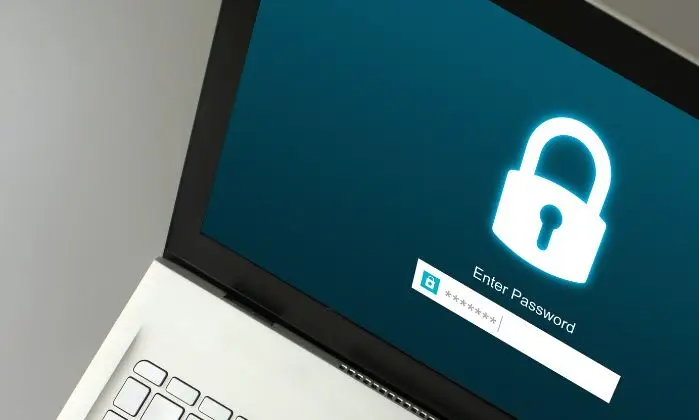The Most Common Causes of Data Breaches
The number of data breaches has exploded in recent years, and hackers are savvier than ever when it comes to accessing your personal data. They may use multiple techniques to steal your information, including phishing attacks, ransomware, and device theft. Companies need to provide adequate cybersecurity that protects your information, but some fall short.

Home • What is a Data Breach? • The Most Common Causes of Data Breaches
- February 26, 2026
You have a right to keep your sensitive data private. If you’ve been the victim of a data breach, Class Action U can help you get the compensation you deserve.
What Are the Common Causes of Data Breaches?
Data breaches may have multiple causes, most of which result from lax cybersecurity or careless data handling.
- Human error can happen anytime, like when someone forgets to log out or leaves a device unattended.
- Insider threats involve someone in your organization leaking information either unintentionally or maliciously.
- Weak passwords are easy for hackers to guess, and weak authentication makes it easier for them to sneak into your system.
- Social engineering can manipulate someone into revealing sensitive information to an outside source.
- Phishing attacks involve sending you an email with a link requesting sensitive information or downloading spyware onto your computer.
- Unencrypted data is at risk of being seen and intercepted by hackers.
- Third-party vendor breaches can put your data at risk, even if the company you’re doing business with has good cybersecurity.
- Ransomware attacks lock customer data until money is paid to the hackers.
- Physical theft of a device connected to a company’s network can allow hackers unauthorized access to that network.
- DNS attacks exploit the internet domain system to gain access to data or divert users to a malicious site.
- Unpatched software and security vulnerabilities can allow hackers easy access to computer systems and databases.
Types of Data Breaches
Data breaches can target any institution that stores customers’ personal data. Hackers want to target credit card numbers and bank details, but they can also target personal health information (PHI) and other personally identifiable information (PII).
PII includes your Social Security Number, full name, and biometric records, as well as your birth date and mother’s maiden name. It also includes things like your employment history and criminal record.
Any organization that stores this kind of data is at risk of attack, and more organizations store this information than you may realize. Some of the most common types of data breaches involve:
- Hospitals and health insurance companies
- Companies that offer cloud computing
- Cell phone providers
- Human resources companies
- Hotels and resorts
Any time you provide personal data to a company, even if you’re just making a purchase online or reserving a hotel room, there is a risk that data may be compromised in the future.
You can help protect yourself by choosing strong passwords and using two-factor authentication on your accounts. This can make it harder for hackers to make use of your personal data should they obtain it. However, institutions that hold your PII, PHI, and other data have a duty to keep it secure.
Why Are Data Breaches So Common?
The problem of data breaches and identity theft is growing—in 2023, there was a whopping 20 percent increase in data breaches over 2022. One explanation is that while companies are being more vigilant about firewalls and password protection, they may overlook less direct routes that bad actors can use.
With more companies relying on cloud computing and third-party vendors to store and process data, hackers don’t have to look far for a way to steal personal information. A company’s cybersecurity may be great, but its customers could be at risk if it relies on a less alert third-party vendor or unencrypted cloud storage.

New cases and investigations, settlement deadlines, and news straight to your inbox.
How Do You Detect a Data Breach?
While you may not know immediately if your data has been compromised, the following signs can help you identify a data breach:
- Unusual activity on your accounts, including password reset requests and logins you don’t remember
- Unfamiliar charges on your bank accounts or credit cards
- A sudden influx of scam emails and calls
- Ransomware messages demanding money to restore access to your personal data
- Notifications from companies that your account has engaged in suspicious behavior
- Any alerts from identity theft protection services you may have
How To Respond to a Data Breach
While having your data compromised can leave you feeling scared, vulnerable, and overwhelmed, knowing what to do after a data breach and taking fast action can help minimize your financial losses.
First, find out as much information as you can about the breach. If you received a data breach notice from a company, read it carefully. You may also want to check in with a credit monitoring agency or look at news reports.
Then, protect your data. Change all the passwords affected by the breach, including on unrelated sites where you use the same passwords. Monitor all your financial accounts closely, and consider a temporary credit freeze.
Once the immediate damage is dealt with, consider your legal options. If the company holding your data failed to keep it safe, you may be eligible to start individual legal action or join a class action lawsuit.
Can You Get Compensation for a Data Breach?
You have a right to keep your personal information safe. Following a data breach, you may have grounds to file a lawsuit, even if your identity has not yet been compromised.
You may also be able to join a class action lawsuit, which is a lawsuit brought on behalf of a group of victims with similar claims. Under a class action suit, you don’t have to pay lawyers up front, and legal costs are typically lower because they’re shared among so many clients.
What Damages Can You Get From a Data Breach?
A data breach can turn your life upside down, and you have the right to financial compensation to help get things back to normal. In addition to financial losses you suffered through a data breach or associated identity theft, you may also be entitled to money for credit monitoring. Damages can also include emotional distress and loss of privacy.
How Can a Data Breach Lawyer Help You Get Compensation?
Data breach lawyers have the resources to investigate the situation and determine who may be liable for your information being stolen. They may even be able to negotiate with insurance and the responsible company to get you the compensation you need without going to court.
If those negotiations break down, a good data breach lawyer is ready to present a case for liability and negligence in a court of law. There are many avenues for you to obtain compensation and protect your data privacy rights—an attorney can help you explore them all.
What Actions Could Be Taken To Prevent the Data Breach From Occurring Again in the Future?
While data breaches threaten your personal information, careful monitoring and a quick response can help you protect yourself from long-term damage. Consulting with a lawyer can also give you options to recover any financial losses.
At Class Action U, our mission is to connect data breach victims with class action lawyers who can get them the compensation they deserve. Did you receive a notice letter in the last 30 days informing you that you were affected by a data breach? Sign up for a data breach investigation.
New cases and investigations, settlement deadlines, and news straight to your inbox.
